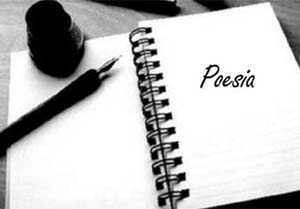 |
|
 |
|
| Visite: 2992 | Gradito: |
Leggi anche appunti:Benedetto croceBenedetto Croce Note biografiche Nasce a Pescasseroli, in Abruzzo, The crisis of certainties - james joyce & virginia woolfTHE CRISIS OF CERTAINTIES - JAMES JOYCE & VIRGINIA WOOLF In the last two I generi letterariI generi letterari Aforisma: sentenza che condensa un pensiero filosofico |
 |
 |
Metamorphosis As A Split Personality "The Strange Case Of Dr Jekyll And Mr Hyde"

"All things therefore seemed to point to this that I was slowly losing hold of my original and better self, and becoming slowly incorporated with my second and worse."
The story of Dr. Jekyll and Mr. Hyde is set in London, England during the late nineteenth century. When Stevenson describes the nights when Dr. Henry Jekyll is working in his laboratory, makes you feel a sense of curiousness. The atmosphere created adds a great deal of emotion and drama to the plot of the story. The main conflict in this novel is Dr. Jekyll's battle with his inner self. Dr. Jekyll's problems began during his youth. He secretly engaged in corrupt behaviour and he created a potion that would separate his good behaviour from his bad. Yet Dr. Jekyll makes a mistake: he brings his bad self, Mr. Edward Hyde, into a true being that would became the vicious side of Jekyll's personality, his darker half. Throughout the novel, Hyde frequently shows himself even when Jekyll doesn't want him to. Jekyll struggles trying to hide his monstrous being from the public but he can't stop Hyde to take control of the situation and do whatever he pleases. Hyde infact commits three murders : a young girl (who was trampled by Hyde), Sir Danvers Carew (who was beaten to death by Hyde) and Dr Hastie Lanyon ( a London doctor that died from shock after he saw Jekyll's transformation from man to monster). Dr. Jekyll then realizes that the transformations have frequently increased and he is running out of the reversible potion. Dr. Jekyll knows that he must do something so Hyde doesn't take over permanently. So he decides to write a letter in which explains everything that has happened and Jekyll notes that the end of his letter marks the end of Dr. Henry Jekyll's life. And that's how the novel ends.
".. this is my true hour of death, and what is to follow concerns another than myself. Here then, as I lay down the pen and proceed to seal up my confession, I bring the life of that unhappy Henry Jekyll to the end."
The main theme of Dr. Jekyll and Mr. Hyde is the duality of human nature. This means how one person can have two completely different personalities. Jekyll represented a good, hardworking doctor, while Hyde represented an atrocious monster. Another important theme is that of reputation: Stevenson sees the psychological and social point of view, where is not important how you are, but how you behave, the image that people have of you, your respectability. This is the kind of contestation and denounce of moralism and hypocrisy of Victorian society. The problem is not to be good or bad but to be respectable.
The protagonist is a respectable man, Jekyll, and an evil genius, Hyde; these two beings are in perpetual struggle and it is the same act of secret chemistry that releases Hyde and restores Jekyll. Hyde is the wicked personality and he gives a sense of deformity and weakness, meanwhile Jekyll represents the good side that is in every person, infact he is a doctor with good reputation and respectability. He discovers a drug that can give life to the wicked person hidden inside him. In time the chemical reactions that permit the changing, became more used so Hyde becomes stronger and more confident. When the changing happens without chemical potions, Hyde takes the control on the reaction.
The reaction happens spontaneously. Dr Jekyll realizes that Hyde is going to win over him and he will never be Jekyll again, consequently he has only two choices. On the one hand, the man may choose a life of crime or, on the other hand, the Jekyll aspect must eliminate Hyde in the only way left: by killing him. And that is the reason why Jekyll commits suicide: is his final and only choice. Therefore, Stevenson implies that man's salvation is based on the annihilation of one part of his nature if he lives in a civilised society.
On several occasions Hyde is made to appear dressed in Jekyll's fine clothes, which are too large for him; this fact points out how small and ugly Hyde is in relation to his alter ego. Though the evil side of Jekyll's nature is initially less developed as Hyde plunges into "the sea of liberty", he begins seriously to erode his good twin. The smaller, slighter Hyde begins to grow in stature and the original balance of good and evil in Jekyll's nature is threatened with being permanently overthrown.
The sense of duplicity is reinforced by the symbolism of Jekyll's house whose two faēades are symbolically the two opposite sides of the same man: the front of this house, used by the Doctor, is well-kept and respectable; while the rear, used by Hyde, is part of a sinister block of buildings.
So I think the point is that everyone has a good and a bad side and if you give the bad side a chance (as Dr Jekyll did with his drug), the bad side will dominate until you won't have a good side any more.
Robert Louis
Stevenson was born in
 |
| Appunti su: https:wwwappuntimaniacomumanisticheletteratura-italianometamorphosis-as-a-split-perso13php, metamorphosis in jekyll and hyde, |
|
| Appunti Poesia |  |
| Tesine Grammatica |  |
| Lezioni Inglese |  |